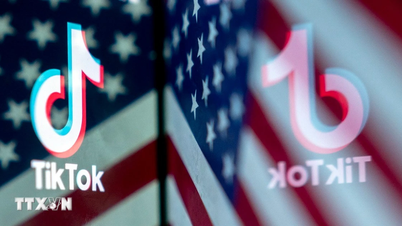
The revised tariff policy will align Canada’s approach more closely with US measures under the United States-Mexico-Canada Agreement (USMCA). This means that many US-made consumer goods will no longer be subject to a 25% tariff when imported into Canada, as long as they meet the terms of the agreement.
However, tariffs on US steel and aluminum products, as well as autos, are expected to remain in place. These sectors continue to be subject to tariffs imposed by President Donald Trump, and Canada has also responded.
The move to adjust tariffs on consumer goods is also designed to pave the way for a review of the USMCA, which is expected to take place in the coming months. Maintaining the USMCA is important to Canada and Mexico. More than 75% of Canadian exports and more than 80% of Mexican exports go to the United States.
The decision also marks a significant policy shift for Canada, which initially responded quickly and aggressively to Washington's protectionist measures.
The announcement came after a phone call between Carney and Trump, the first since talks between the two countries collapsed ahead of the August 1 tariff deadline. The Canadian prime minister's office said the two leaders agreed to meet again soon, and Carney's decision to drop the retaliatory tariffs would help advance Ottawa-Washington talks.
Canada quickly imposed retaliatory tariffs on C$30 billion ($21.7 billion) worth of U.S. goods under Prime Minister Justin Trudeau, ranging from orange juice and wine to clothing and motorcycles. In response to U.S. steel and aluminum tariffs, Canada imposed similar tariffs on its neighbor’s metals and consumer goods.
In July, President Trump announced he would raise tariffs on Canada to 35% “in response to Canada’s continued inaction and retaliatory measures” related to stopping the flow of fentanyl into the United States.
According to CNBC
Source: https://hanoimoi.vn/canada-noi-long-thue-quan-tra-dua-doi-voi-my-713692.html






![[Photo] Prime Minister Pham Minh Chinh chairs the meeting of the Government Party Committee Standing Committee](https://vphoto.vietnam.vn/thumb/1200x675/vietnam/resource/IMAGE/2025/8/23/8e94aa3d26424d1ab1528c3e4bbacc45)
![[Photo] General Secretary To Lam attends the 80th Anniversary of the Cultural Sector's Traditional Day](https://vphoto.vietnam.vn/thumb/1200x675/vietnam/resource/IMAGE/2025/8/23/7a88e6b58502490aa153adf8f0eec2b2)


































































































Comment (0)